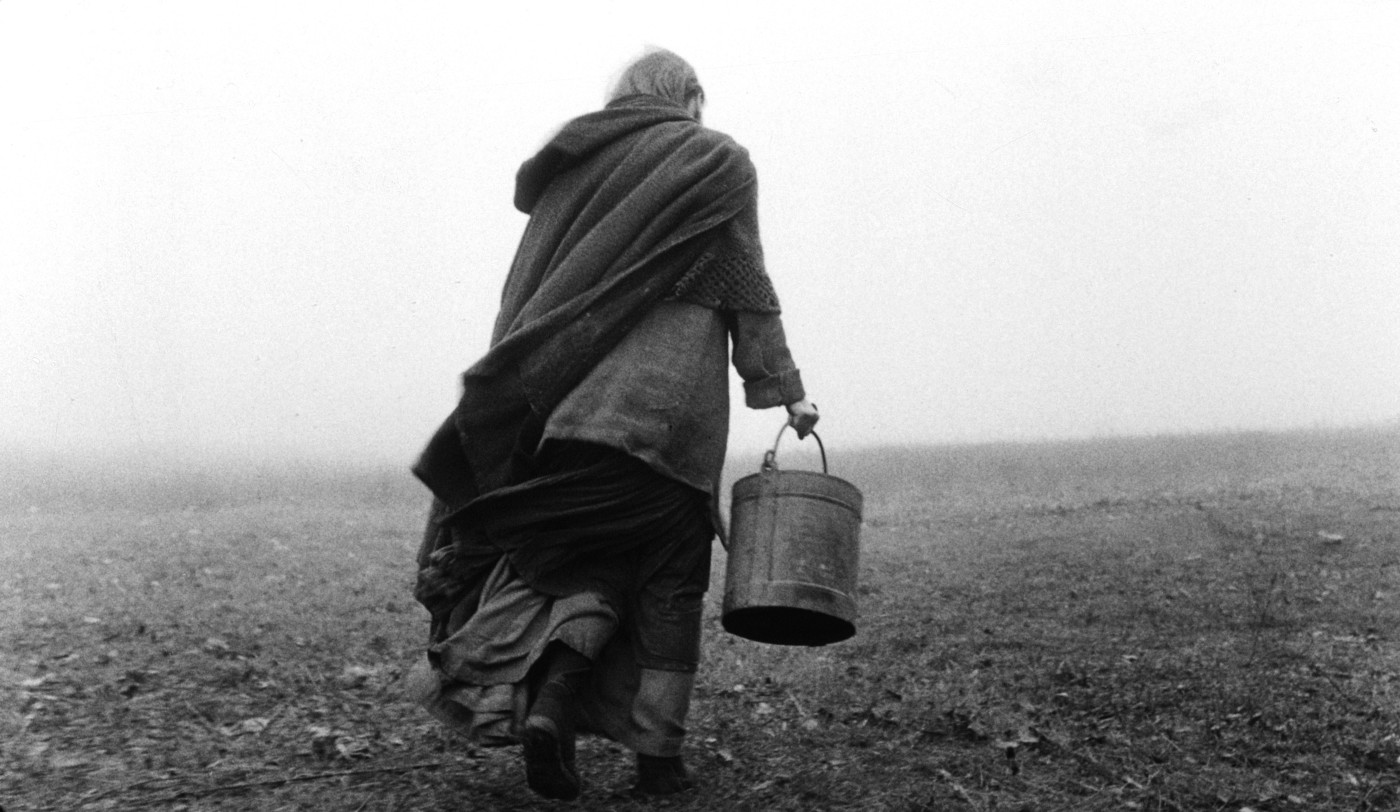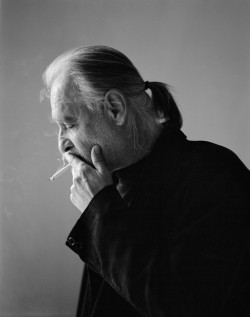
The fact that, in 1889, philosopher Friedrich Nietzsche embraced a tormented horse and later lost his marbles, is essentially common knowledge. But what became of the horse? This beguiling black-and-white film, about the simplicity of human coexistence by the master of spiritual cinema Béla Tarr, won the Jury Grand Prix at this year’s Berlin IFF.


In 1889, while travelling in Turin, Friedrich Nietzsche threw his arms round a maltreated horse, he lost consciousness and then lost his reason. We know much about the philosopher’s fate and his demise. But what of the horse? The Turin Horse offers a perfect synthesis of the singular style of influential Hungarian solitaire Béla Tarr. Through his measured sequence of long shots, accompanied by suggestive music and focusing on inexpressive acting, Tarr builds up a beguiling atmosphere of timelessness which defies a positive outcome. Almost without dialogue, the film examines the necessity of human coexistence and, at the same time, the powerlessness of the human race when faced with major change. Here, meaning arises not through the characters’ dialogues, but through their actions and the semblance of calm that surrounds them. The film’s tension, then, stems not from the dynamic editing, but from the content and structure of carefully composed shots. "We brought the film to its logical conclusion,” says Ágnes Hranitzky, the director’s editor and life partner. For his part, Tarr declared this film to be his last.
146 min / Black & white, 35 mm
Director Béla Tarr
/ Screenplay Béla Tarr, László Krasznahorkai
/ Dir. of Photography Fred Kelemen
/ Music Mihály Víg
/ Editor Ágnes Hranitzky
/ Producer Gábor Téni
/ Production T.T. Filmműhely
/ Cast Erika Bók, János Derzsi, Mihály Kormos, Ricsi
/ Contact Asociace českých filmových klubů, Films Boutique
/ Distributor Asociace českých filmových klubů

Béla Tarr (b. 1955, Pécs, Hungary) is one of the most original directors around today. From works highlighting social issues, he moved towards spiritual films whose style, defined by long, sweeping shots, earned him worldwide acclaim. Films such as Satan’s Tango (Sátántangó, 1994) and Werckmeister Harmonies (Werckmeister harmóniák, 2000) are regularly screened at the world’s most prestigious festivals. Tarr works with a permanent team of film professionals that include his partner, co-director and editor Ágnes Hranitzky, composer Mihály Vig, and author and co-screenwriter László Krasznahorkai. This same group was also involved in The Turin Horse, which won the Jury Grand Prix and the FIPRESCI Prize at this year’s Berlin IFF.
Asociace českých filmových klubů
Stonky 860, 686 01, Uherské Hradiště
Czech Republic
Phone: +420 572 501 989
E-mail: [email protected]
Films Boutique
Köpenicker Str. 184, 10997, Berlin
Germany
Phone: +49 306 953 7850
E-mail: [email protected]

Pavel Bednařík
Publicity

Laura Inoka
First-hand brews throughout the year.
Be among the first to learn about upcoming events and other news. We only send the newsletter when we have something to say.